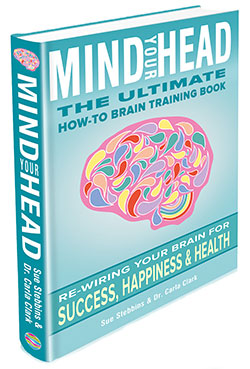Recreative Minds: Imagination in Philosophy and Psychology
(GREGORY CURRIE, IAN RAVENSCROFT)
Reviewed by Peter Carruthers
Page 3
Source: http://ndpr.nd.edu/review.cfm?id=1309
Why should there be this sort of difference between beliefs and desires in respect of their suppositional counterparts? Arguably, the explanation derives from the role of supposition in the mental rehearsal of action, and in reflective practical reasoning more generally. Once an initial plan has been hit upon – ’I’ll do Q’ – mental rehearsal consists of running the supposition that I do Qback as input through the various inferential systems (including desire-generating and emotion-generating systems), to see what other effects can be created or predicted. These in turn generate motivational and emotional responses, which can be monitored and summed to determine whether or notQ would be a good thing to do all things considered. (See Antonio Damasio,Descartes’ Error, for arguments and evidence that soma-sensory monitoring has a crucial role to play in normal human practical reasoning.) If we suppose that mental rehearsal is what the human suppositional capacity was originallyfor, in evolutionary terms, then it is easy to understand why the inputs to supposition-based processes should all of them derive from the factive (belief-like or perception-like) side of the mind. For it is by supposing that I do something, or by imagining myself doing something, that such rehearsals get started.
This sort of account can readily explain why it is so difficult for us to adopt alien desires or values in imagination. This is because there isn’t any desiderative equivalent of supposing, or because there is no such thing as desire-like imagining. What a novelist or playwright has to do, in order to evoke in us a motivational response that we wouldn’t normally have, is to manipulate our belief-like imaginings in such a way that a response of that kind might naturally be created. And I suspect that what an author has to do in order to bring us to full imaginative acceptance of an alien moral system, is to encourage us to imaginatively take on a rich network of normative beliefs(’It is good for the weak to suffer’, ’The strong ought to express their dominance over the weak’, or whatever), and then to rely on the fact that such attitudes are designed to straddle the belief / desire divide in order to produce in us at least some echo of the corresponding motivations and emotions.
This kind of account also has the resources to explain why it is that children engage in episodes of pretence, I believe. Consider how this might go in a particular case. The child sees a banana, and the overall similarity of shape between it and a telephone handset prompts the child to entertain the belief-like supposition, ’The banana is a telephone’, or more simply, ’That is a telephone’. Supposing that the banana is a telephone, and recalling that grandma can be called on the telephone, might activate the child’s standing-state desire to call and talk to grandma. Then by acting-out doing so (and by representing her movements as acts of dialing, of talking to grandma, and so on) the child can gain some of the motivational rewards of a real phone-call. For within the scope of the initial supposition, the child’s real desire to talk to grandma is satisfied, or at least quasi-satisfied. (No real talking with grandma actually takes place, of course, so the desire isn’t objectively satisfied. Nor does the child actually believe that she is talking with grandma. Rather, sherepresents what she is doing as talking to grandma, and her motivational system responds accordingly.) Of course, the satisfaction only lasts as long as the pretence continues; as soon as it finishes, the child is no longer thinking that she has recently spoken with grandma, and her desire to talk with her either reverts to dormancy, or remains active and unsatisfied. And indeed, it is common for children in such cases, when finishing a game of this sort, to say, ’Now let’s really call grandma’.
This account of the motivations behind pretence utilizes mental rehearsal mechanisms that we already have some reason to believe in anyway; and it explains why pretence tends to consist of activities that children find genuinelydesirable. For notice that when children act out scripts – e.g. bathing the baby, talking with an imaginary friend, and so on – these tend to involve roles in which those children actually want to engage. But what about pretending to be a steam-train, for example? Surely the explanation for this behavior can’t be that the child actually wants to be a steam-train? In fact our explanation can be as follows, remaining within the spirit of our approach: the child finds steam-trains admirable (he really does); by acting out the movements of a steam-train, and hence by representing himself as a steam-train, the child is then representing himself as something admirable, and that is why he does it; for within the scope of his pretence, he can find himself admirable (which is enjoyable).
These considerations lead quite naturally into my third line of criticism of Currie and Ravenscroft’s book, which concerns their account of autism. On their view, autism is basically a failure of the imaginative systems of the mind, manifested most centrally in the failures of autistic children to engage in pretend play. This contrasts with the ’orthodox’ account of autism, which sees it as a condition resulting from damage to, or from failure to develop, core mind-reading abilities. (The latter is the now-familiar ’autism as mind-blindness’ hypothesis defended by Simon Baron-Cohen.) On Currie and Ravenscroft’s account, the reason why autistic children have difficulty in attributing mental states to other people, derives from the role that imagination normally plays in enabling us to simulate the minds of others, rather than from lack of core mind-reading ability. (So those difficulties don’tresult primarily from problems involved in the children’s possession of mental concepts per se, nor from their lack of knowledge of core inferential liaisons.) For, by lacking imagination, autistic people will lack simulative abilities too.
The main alleged virtue of this account is that it explains the absence of pretence amongst children with autism. (Absence of pretend play is, along with lack of proto-declarative pointing and shared-attention behaviors, one of the three main diagnostic criteria for autism in very young — eighteen month old — children.) In contrast, it is said to be obscure why a lack of core mind-reading abilities should be associated with an absence of pretence. But given the points already made above, such an explanation can actually come quite readily to hand. For it is widely accepted that younger autistic children have significant problems with the recognition of agency, and in categorizing the actions of agents as such. (Autistic children have a marked tendency to treat other people as objects, using them as items of furniture, or as tools to achieve desired ends — e.g. pushing a care-giver’s hand in the direction of a desired object.)
So we can propose that the central deficit in autism lies within core mind-reading ability, initially affecting the child’s developing conception of agency and intentional action. (A number of developmental psychologists have proposed that the earliest form of mind-reading involves a simple kind of action-psychology, categorizing actions by the goals to which they are directed.) This then makes it difficult for the child to represent his own movements as the performance of another sort of action (e.g. to represent the act of holding a banana to his ear as an act of lifting a telephone), necessary to reap the motivational rewards of pretence. So the reason why autistic children don’t pretend, on this account, isn’t because they can’t, but because they don’t enjoy it. And indeed, there is significant evidence that autistic children can pretend when prompted. They just don’t normally see the point of doing so. (Admittedly, they also tend not to be very good at pretending when they do engage in it, but this is only to be expected if they don’t do it very often. Perhaps pretence improves only with practice.)
There are two basic kinds of book review. There are reviews that tell you in considerable detail what the book is about, and what the book’s contributions are to issues of current debate; and there are reviews that are mostly critical, attempting to push along and develop some of those debates still further. The present review has been firmly in the latter camp. But I wouldn’t want this to disguise my admiration for Recreative Minds, nor to give the reader the impression that I think the book isn’t a good one. On the contrary, Currie and Ravenscroft have written an excellent and wide-ranging discussion of the character and role of the imagination: read it and profit.
We Make it Easy to Succeed
Successwaves, Intl.
Brain Based Accelerated Success Audios
 |






